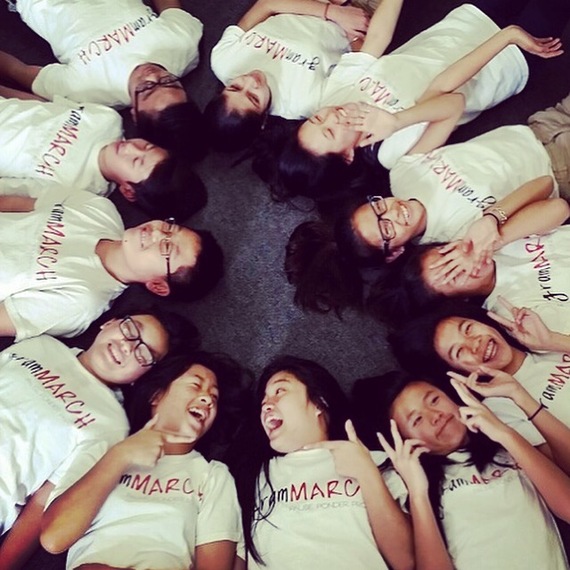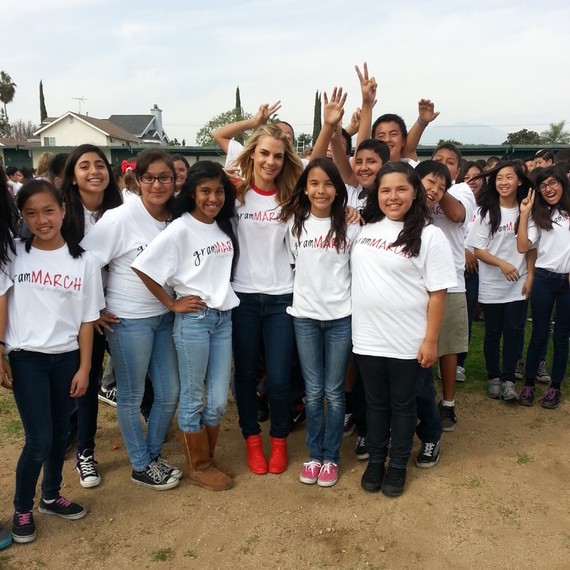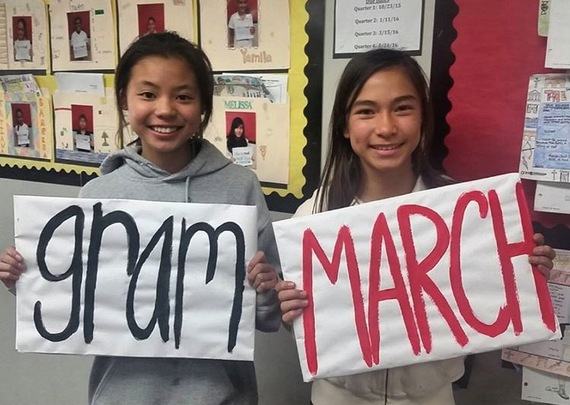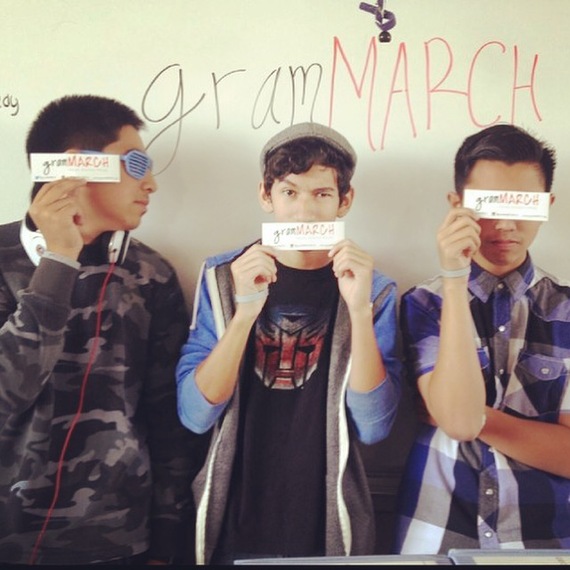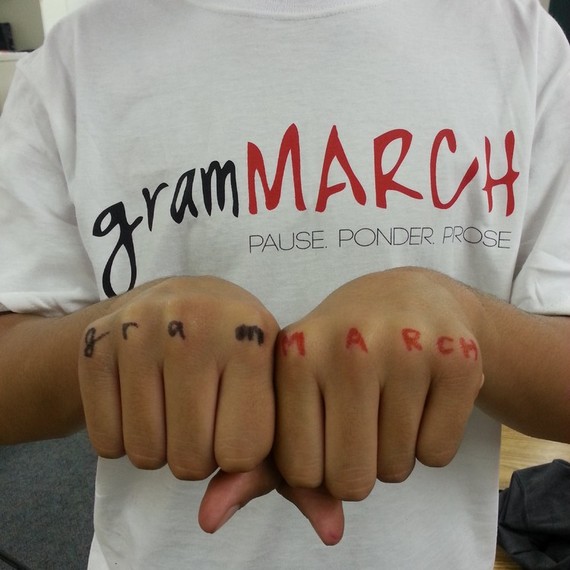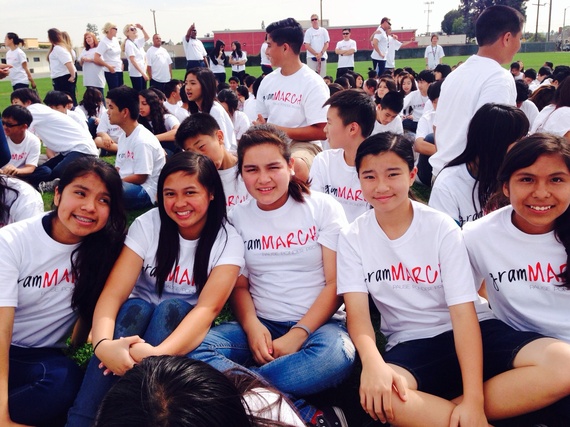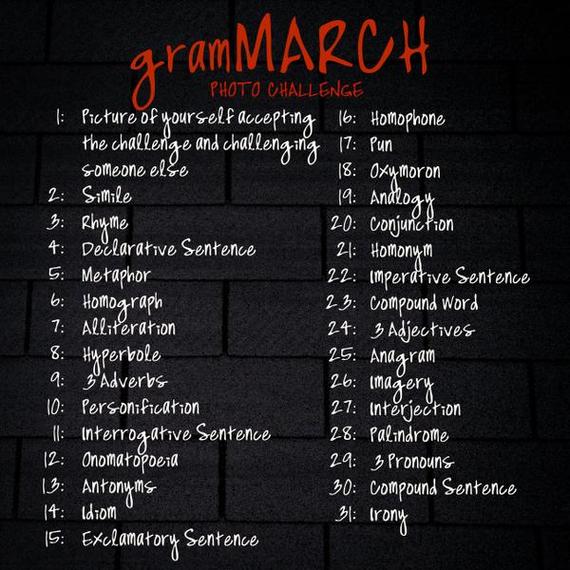Los Angeles middle school teacher Heather Shotke is fed up with all the LOLs, OMGs, and IDKs appearing in her students' formal essays, so much so that she has banned such acronyms in her classroom. And she is daring America to join her.
A veteran teacher with a master's degree in education and a communication degree from USC, Shotke has become increasingly disturbed by "text lingo" migrating from her students' smartphones into their papers.
Slang and abbreviations have become "the unapproved norm in the classroom," says Shotke, "blurring the lines between formal and informal communication." To draw attention to the issue, she has launched a 31-day grammar and mindfulness challenge. For the month of March, all who accept may only write in proper grammar, type out full sentences and use entire words in their school work, formal writing and, in what is sure to be the most vexing aspect of the contest for teens, in text messages and Snapchats. In a bit of irony, Shotke has even given the challenge its own easy-to-text moniker: gramMARCH.
What follows is my lightly edited conversation with Shotke on her passion for teaching, what led her to launch gramMARCH and why she believes we should all take a step back to "pause, ponder and prose."
MG: You've been a middle school teacher for over a decade. What is it about this age group that keeps you coming back?
HS: Middle school is an age group that you love or you hate, and I love it. I think it's that you're still able to reach them. They're not too cool for school yet. They think they're grown, but at the same time you can still connect and make a difference.
MG: Breaking through to a middle schooler seems like it could be tough. How do you reach them?
HS: As a teacher, you're always trying to relate to these kids. You kind of have to play this game where you're an authoritative figure, but you have to still be relevant and cool. So, you know, you have to stay in touch with the music and the fashion but at the same time you're helping to mold them so that they're successful in society by, for example, knowing when to use informal versus formal language.
MG: What do you mean by "informal" versus "formal" language?
HS: I've been teaching 14 years now, so I've seen the evolution of technology in the classroom. At first more and more kids started getting cell phones. Then they were getting smart phones. And at the same time that this technology started becoming so readily available, I started seeing for the first time that my students would draw a little happy face :) in their writing. Or, they'd write "OMG" next to a sentence that they really wanted me to notice. Or put an "LOL" when they were trying to be funny. At first, I thought, "This will pass. I'll just mark it up with red. Talk to them about it." But over time, I saw it happening more and more and more. As a teacher, I was thinking, "What am I doing wrong? They're not listening to me."
MG: Were other teachers seeing the "OMGs" and "LOLs" in formal writing assignments, too?
HS: They were; and I even spoke to some some admission advisors at Cal State and USC who said they were seeing this text lingo in admission essays! That blew me away. I see students working so hard on their admissions essays, and you would think that they would take the time to write out "you" rather than "U," or type out "easy," rather than "EZ." But these people said it was becoming more and more prominent.
MG: Avoiding shorthand in a college essay probably seems like common sense to a lot of adults, but I guess we forget that we weren't texting when we were in middle school. It would be confusing to know which "language" to use if you'd never been taught.
HS: Exactly. We teachers didn't grow up with a phone in our hands. They have! That's what they're familiar with, so it's tricky for them to know when to switch and go back and forth between the two. We have a "no cell phone" policy during the school day, but I swear their hands are in their pockets all day making sure it's there, even though they can't even bring it out. Now the thing is SnapChat. They're on it 24/7. For me, technology has become a gift and a curse. Although it has made the world a much smaller place, it's led to brevity and this constant shorthand. It can really diminish quality writing.
MG: So you decided to get creative and do something about it...
HS: Yes, in 2014 I decided to try to meet my students where they were at: on their phones, in their texts, on their social feeds, and in their games. I started something called the gramMARCH Challenge. The idea is that for the entire month of March, everyone is expected write in proper grammar, in full sentences and use entire words no matter the medium. No emojis. No text lingo. All correct punctuation for the entire month, whether writing on Instagram or an English paper.
MG: In your ideal world, would text lingo and emoticons be banned forever?
HS: No, I don't want to come across as this grammar grandma. The gramMARCH Challenge is about awareness and mindfulness. There is a time and place for everything. I have no problem with the text lingo. It's just a matter of being aware of audience and knowing when to differentiate whether it's appropriate or not.
MG: How did your students first respond to the idea of the gramMARCH Challenge?
HS: The way I presented it to my class was: "I really don't know if you can do it?" They were definitely intrigued, and said: "Ok, we'll accept that challenge." Each day had a different theme. For example, we have a Simile Day, a Rhyme Day, a Hyperbole Day, an Irony Day. At first I got questions from other teachers, like: "How are you going to monitor if students are sticking to the rules?" But the kids got really into it and monitored themselves! They are always checking each other on it. Then my kids started challenging their cousins at other schools to join in too. We started handing out stickers and working together to brand the idea. We created a website and started an Instagram account, and it took off from there.
MG: Who can join the 2016 gramMARCH Challenge?
HS: Anyone! It's for adults, families, and classrooms everywhere. Everyone wants to get information out so quickly, we don't always pause for just a moment to think what impression the information might be making on others. Through gramMARCH, we are challenging America to slow down and be more mindful with language, so that thoughts and words are given respect.
Interested in taking the gramMARCH Challenge? Sign up here!
**All photos and media used with permission of Heather Shotke & GramMARCH**

